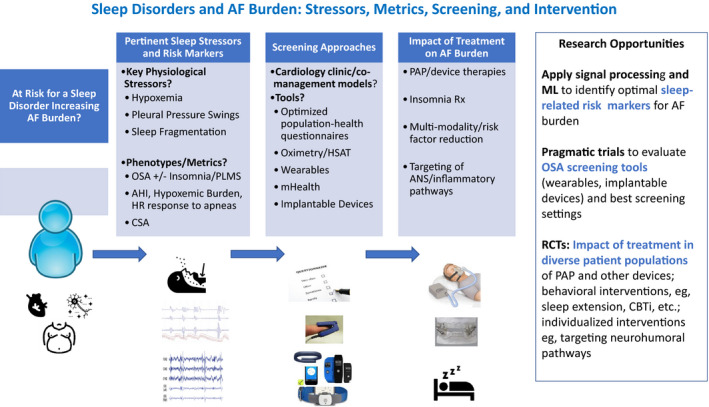Figure 4. Sleep disorders and atrial fibrillation (AF) burden: stressors, metrics, screening, and intervention.

A high proportion of patients with AF have obstructive sleep apnea (OSA) and other sleep disorders that can increase AF burden through atrial remodeling, autonomic nervous system (ANS) alterations, and metabolic/inflammatory pathways. AF burden may be reduced by improved understanding of the metrics and phenotypes that identify risk for sleep‐related AF burden and implementing cost‐effective screening. Randomized controlled trials (RCTs) are needed to evaluate the impact of sleep disorders screening/treatment on AF burden. AHI indicates apnea‐hypopnea index; CBTi, cognitive‐behavioral therapy for insomnia; CSA, central sleep apnea; HR, heart rate; HSAT, home sleep apnea test; ML, machine learning; PAP, positive airway pressure; PLMS, periodic limb movements in sleep; and Rx, treatment.
